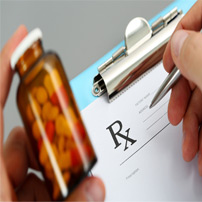How Dangerous it is to take the Wrong Medication?
October 22, 2017 At least 1.3 million Americans sustain injuries as a result of medication errors, according to data from the Food and Drug Administration (FDA). And, according to a newly published study in the medical journal Clinical Toxicology, the number of medical errors is steadily increasing, putting thousands of people in danger every day.
At least 1.3 million Americans sustain injuries as a result of medication errors, according to data from the Food and Drug Administration (FDA). And, according to a newly published study in the medical journal Clinical Toxicology, the number of medical errors is steadily increasing, putting thousands of people in danger every day.
Medication errors can occur in different scenarios. Some are the result of a pharmacist filling a prescription order with the wrong medication type or incorrect dosage. Others occur when a person takes the wrong pill, fails to wait long enough in between medication doses or takes the wrong amount. The Mayo Clinic reports that medication errors can also be the result of poor communication between a doctor and his or her patient, drug names that sound similar, poor communication between doctors, or the use of medical abbreviations.
According to Clinical Toxicology’s study, the number of people injured from medication errors doubled between 2000 and 2012 – in 2012, a total of 6,855 people were injured. The study lasted thirteen years and in that period a total of 67,000 became ill; one-third of them severely enough that they required medical attention and/or treatment. In total, 414 individuals died as a result of medication errors.
The consequences of taking or receiving the wrong medication, not following dosage directions, or taking too much or too little of a prescription can result in injuries ranging from mild to lethal in severity. The study’s authors counted only how many medication error cases were reported to poison control centers around the country; they did not document cases that occurred in hospital and other healthcare settings. This indicates that the actual number of Americans injured from medication errors annually is much higher.
General medical errors are the third-leading cause of death in the United States and a large portion of them are the result of medication mistakes. The National Coordinating Council for Medication Error Reporting and Prevention (NCCMERP) estimates that nearly 100,000 people die every year from medical errors – but notes that the exact number of medication-related fatalities remains unclear due to reporting issues.
The researchers were able to determine which medications are most often tied to serious at-home medical errors. Cardiovascular drugs are nearly two-times as likely to result in medication errors as analgesics, or painkillers, are. Other error-related medications include hormones, sedatives, antidepressants, anticonvulsants and cold and cough medicines. The researchers suggest that certain medications are more likely to result in dangerous errors due to the fact that doctors are prescribing them more often.
Most of these medication errors are 100% preventable. When picking up a prescription from the pharmacy, it can be helpful to ask the pharmacist to double-check the order. Other tips from the study’s authors on preventing medication errors include:
- Ensure that all medications are child-proofed and locked away;
- Watch children closely when they take any medications – especially ones who are between the ages of 6 and 12-years-old – and be careful that you have given them the correct medication and dosage, and:
- Keep a medication log that tracks what medication was given and at what time (this helps ensure the correct time between doses) – especially if more than one person will be giving it out
Knowing as many preventative measures as possible will only further help to protect against these avoidable mistakes. The Mayo Clinic urges patients to make sure they know the answers to certain questions when they are prescribed any new medication. Some of the important questions to get answers to are:
- What are the medications generic and brand names?
- What dosage is it for?
- How long will I take it for?
- What happens if I accidentally miss a dose?
- What should I do if I take too much?
- What are the side effects?
- Will this interact with my other medications? (List them all, including over-the-counter medications)
To read more tips on medication error prevention as well as other useful questions to ask your doctor or prescriber from the Mayo Clinic, please visit: https://www.mayoclinic.org/healthy-lifestyle/consumer-health/in-depth/medication-errors/art-20048035.
It is critical to be careful when taking any type of medication, as well as to make sure that you get any questions you have answered by a doctor or pharmacist. Please contact our firm if you have any other concerns about medication errors.
Philadelphia Medical Malpractice Lawyers at Galfand Berger, LLP Representing Injured Individuals Since 1947
If you received the wrong prescription or incorrect dosage from a medical professional and became ill as a result, please contact our Philadelphia medical malpractice lawyers at Galfand Berger. With offices located in Philadelphia, Bethlehem, Reading, and Lancaster, we serve clients throughout Pennsylvania and New Jersey. To schedule a consultation, call us at 800-222-8792 or complete our online contact form.
 Google Screened
Google Screened
